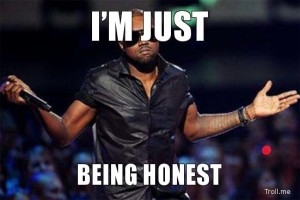
Continuing the discussion with the Maverick (Bill)…
“Being itself,” I take it, is something like a universal property, an abstract and not a concrete object. (Or at least, it’s not supposed to be concrete; maybe he thinks that it is neither abstract nor concrete.) I’m not sure if Bill would accept those characterizations, but if not, I invite him to say a little more about what he means by “Being itself.” The “itself,” I assume, entails not being a self. But God – that is, the God of Christianity, or of biblical monotheism – is a god, and a god is, analytically, a self. I’m pretty sure that no self can be “Being itself” in the way that Bill means it, but again, I invite him to say more about what it is to be “Being itself.”
Bill says,
“For Dale, if I understand him, [the phrase “Being itself”] doesn’t refer to anything, or at least not to anything mind-independently real. If so, then God, who we both believe exists, cannot be identical to Being itself. For God is mind-independently real.”
Insofar as I understand it, I would take “Being itself” to be equivalent to “Existence itself” or “Reality itself” – a plural referring term which picks out all that exists – God, creatures, and of course all their modes – the whole enchilada. It doesn’t refer to any one thing, but rather, to a bunch of things. It could mean the same as “Everything” or “the sum total of all beings [and their modes].” The usage here is like “the cosmos” or “Creation” – it is just the sum total of created things. Or if you’re Carl Sagan, “the Cosmos” would be all the physical things.
And I agree that each of us has the concept being, but as he says, this concept (like any concept) is mind-dependent; not perspective-relative, but rather something which just is a mode of a mind, a way a mind is. A concept is, I take it, just the ability to recognize a certain way things may be.
Bill suggests that I should argue:
- Existence itself does not exist;
- God exists;
- Ergo, God is not (identical to) existence itself.
I think the argument is valid and sound, given that “existence” means something like a universal or an all-pervasive substratum or principle/ingredient.
Now if “existence” is a plural referring term for all the existing things, then I think 1 would still be true. “Exists” here refers to mind-independent existence; what is only imagined or projected does not exist. And the sum total of existing things (“existence”) is not itself an additional thing. So, I think 1 would be true or this reading.
 But this argument would be trivially valid, because the conclusion would be a necessary truth (so, it’d be impossible for all the premises to be true while the conclusion is false, that is, it’d be impossible for the argument to be invalid, because it’s impossible for the conclusion to be false). “God” is a singular referring term, whereas “existence itself” (on this reading), is supposed to be a plural referring term. But identity is one-to-one. You can’t have one entity being numerically the same as multiple beings. e.g. One guy can’t be identical to the Three Musketeers.
But this argument would be trivially valid, because the conclusion would be a necessary truth (so, it’d be impossible for all the premises to be true while the conclusion is false, that is, it’d be impossible for the argument to be invalid, because it’s impossible for the conclusion to be false). “God” is a singular referring term, whereas “existence itself” (on this reading), is supposed to be a plural referring term. But identity is one-to-one. You can’t have one entity being numerically the same as multiple beings. e.g. One guy can’t be identical to the Three Musketeers.
Helpfully, Bill also gives an inconsistent triad concerning the issue before us, that is, three claims which can’t all be true. Any pair of them implies that the remaining one is false.
- Existence itself exists.
- God exists.
- God is not (identical to) existence itself.
I affirm 2 & 3, denying 1. He affirms 1 & 2, denying 3. Yeah! We’re both self-consistent. If only that were enough! 🙂 Problem is, we can’t both be correct.
Bill also, in his post, helpfully lists out five possible views on God and Being. Both exist, neither do, or one does but the other doesn’t. And if they both exist, they’re either identical or not. He gives J.P. Moreland as an example of one of thinks that both exist, but are different. I’m not sure that’s right. Yes, Moreland, who one could describe as a Platonist, or a realist about Universals, does affirm that there is a universal existence. But “Being itself,” is, I take it, supposed to be the unique, fundamental reality, in some way the source or ground of all else. And I would think that J.P. would deny this; as a monotheist, he thinks that God is ultimate. (Or so I suppose. I was his student once upon a time, but haven’t communicated with him in many years.)
Next time, Bill’s arguments that God is being itself, that 3 above is false.

Pingback: Absolute Deity: Being, Beyond Being, or a Being? | Eclectic Orthodoxy
Pingback: Absolute Deity: Being, Beyond Being, or a Being? | Eclectic Orthodoxy
Comments are closed.